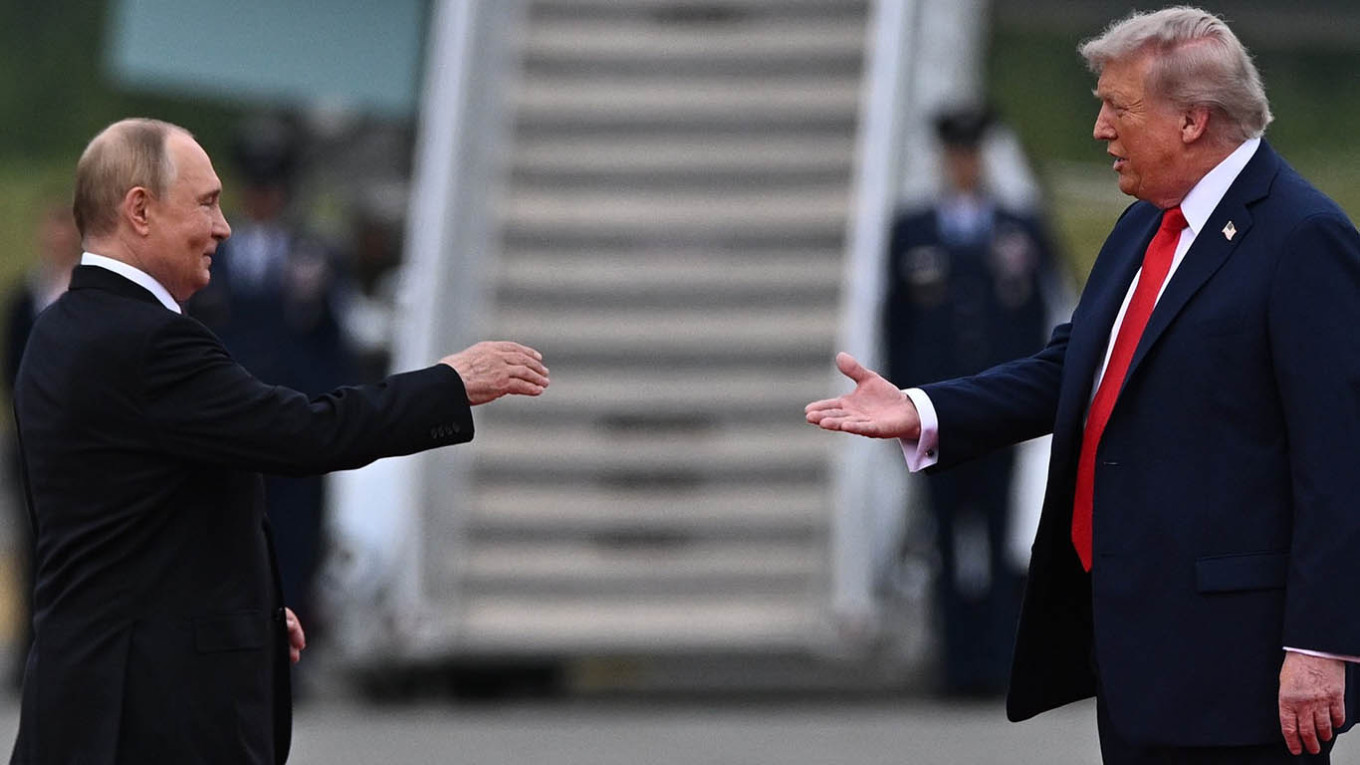Russian state television has blamed Western nations and European media for the delays in organizing a proposed summit between Presidents Vladimir Putin and Donald Trump, which is intended to address the ongoing conflict in Ukraine.
On Tuesday, Trump unexpectedly dismissed the Budapest summit, expressing a desire to avoid what he termed a “wasted” meeting. This decision followed reports of Russia’s unwillingness to ease its stringent demands for concluding the invasion during pre-summit discussions with American officials.
State-owned Channel One commenced its Wednesday broadcast on the summit by quoting Hungarian Foreign Minister Péter Szijjártó, who stated that “the European pro-war elite and its media are doing everything possible to prevent the Russia-U.S. summit from happening.”
Interestingly, the investigative outlet Agentstvo pointed out that in Channel One’s coverage, Szijjártó’s remarks about “the pro-war elite” were modified to specify “European,” a term the Hungarian official did not originally use.
His actual quote was: “The pro-war political elite and their media tend to act this way prior to events that could be pivotal in deciding between war and peace.”
In addressing Ukrainian President Volodymyr Zelensky’s planned visits to Brussels and London, where EU leaders are expected to unite in support of Ukraine, Rossia 1 suggested that the West aims to “freeze” the war rather than seek a comprehensive peace settlement.
“A Rossia 1 host stated, “Western media report that Brussels and Kyiv are preparing to unveil their own peace initiative—not one that seeks to tackle the fundamental issues, but rather one focused on freezing the conflict.”
Moscow asserts that the “fundamental causes” of its extensive invasion include Ukraine’s aspirations for NATO and EU membership, NATO’s supposed breach of promises concerning eastward expansion, and alleged discrimination against Russian speakers in Ukraine.
Many of the Kremlin’s requests, especially regarding territory, are considered unacceptable by Kyiv.
Furthermore, Russian federal channel NTV claimed that “international media is intentionally misrepresenting information to obstruct negotiations,” labeling claims about the cancellation of the Budapest summit as “disinformation.”
Moscow has increasingly portrayed Kyiv’s European allies as its primary opponents and the greatest hindrance to peace following Trump’s inauguration in January.
Earlier this month, Putin asserted that Europe holds the primary responsibility for resolving the war, accusing it of fueling the conflict.
In the meantime, Trump has expressed growing frustration with Putin’s ongoing refusal to agree to a ceasefire in a war that has lasted nearly four years, despite multiple rounds of diplomatic efforts and a summit between the two leaders in Alaska in August.
When questioned about Trump’s recent statements regarding the Budapest summit, Kremlin spokesman Dmitry Peskov responded, “Neither President Trump nor President Putin wants to waste time.”
Peskov remarked that “the current pause necessitates high-level intervention, but such intervention must be thoroughly prepared.”
Russian Deputy Foreign Minister Sergei Ryabkov stated on Wednesday that “preparations for a summit are still ongoing,” adding that such preparations “can take many forms.”
Ryabkov also noted that no meeting had been scheduled between Russian Foreign Minister Sergei Lavrov and U.S. counterpart Marco Rubio in Budapest.
“There are no agreements on this. Therefore, I am preemptively warning those who might start writing about the cancellation of anything—don’t,” he cautioned.

